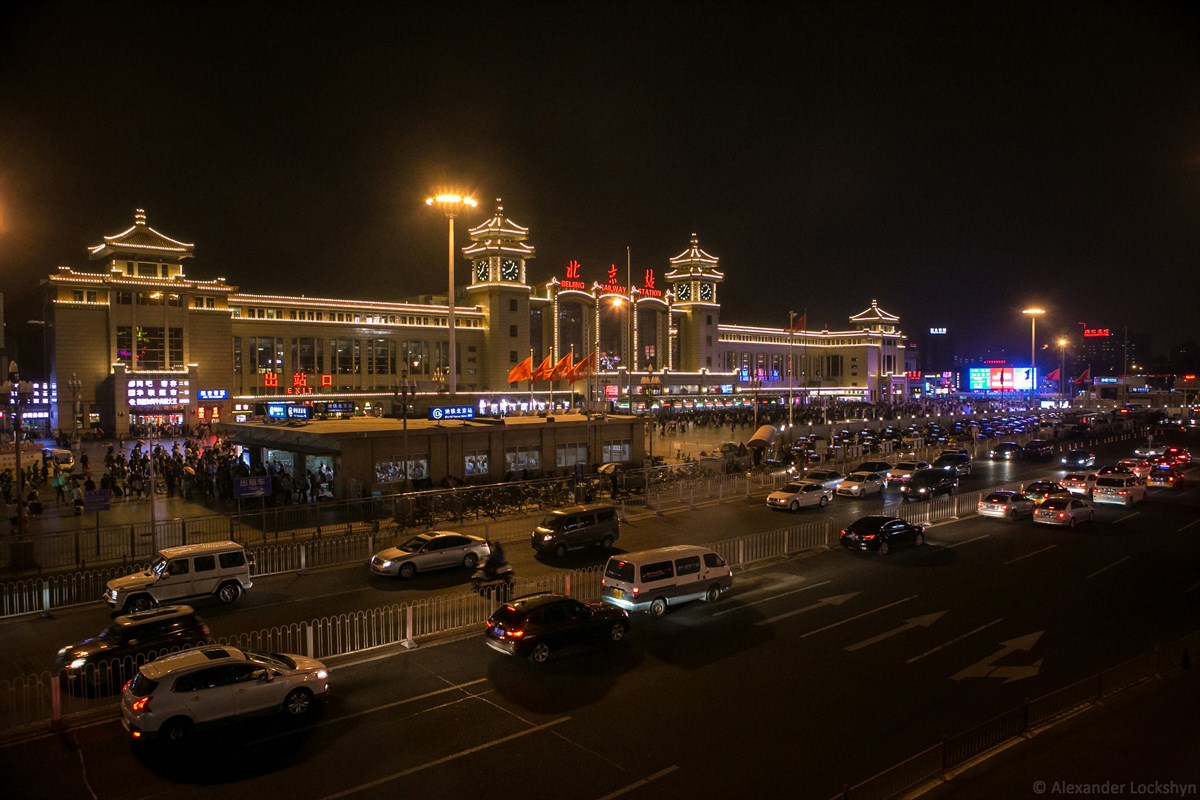If somebody have told me I’d freak out because of armed military pointing their guns on me and I walk away through neon-lightened rainy streets, I’d tell it sounds like a cliched cyberpunk novel. But that is exactly what happened to me in Beijing.
Why the hell should you visit Beijing? It is a great starting point for anyone, who wants to explore high tech and low life in modern Asia. Beijing is a huge transport hub and have direct connections to most large cities in China via planes and high-speed railway. Let’s start our journey and jump forward to the main railway square. It looks neat and festive at first.
The more you walk through that square, the more dystopian details you see.
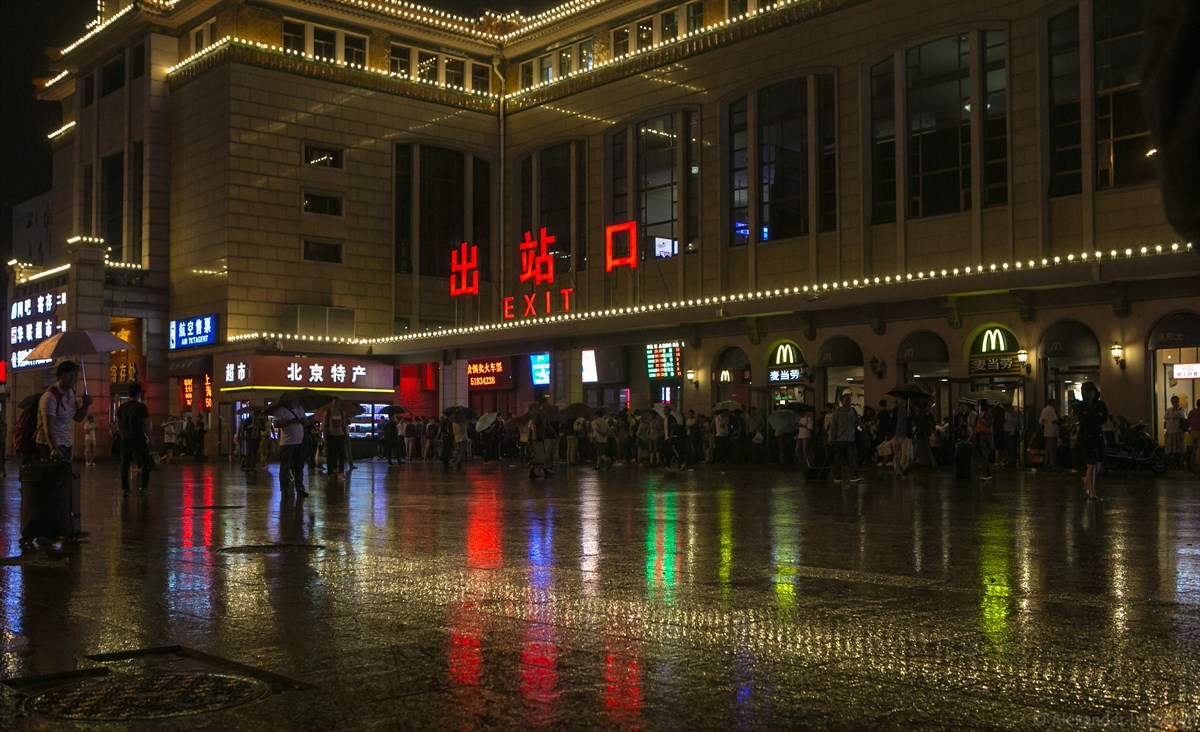
Suddenly you shit bricks: there are armed guards on every corner. And no, I don’t mean usual security, I mean armed military standing in groups of 2–3 people inside machine-gun nests and pointing their guns at you. Sometimes they stand still with their guns down, but it still feels creepy as fuck. I don’t have much pictures of them: it felt too risky to point large camera on somebody, who’s pointing the gun on you and does not look friendly.

Actually nobody looks friendly on the square, especially people in ticket lines — no laughs, no smiles, no curiosity. They just stand in lines with their umbrellas, watched by machine gunners.
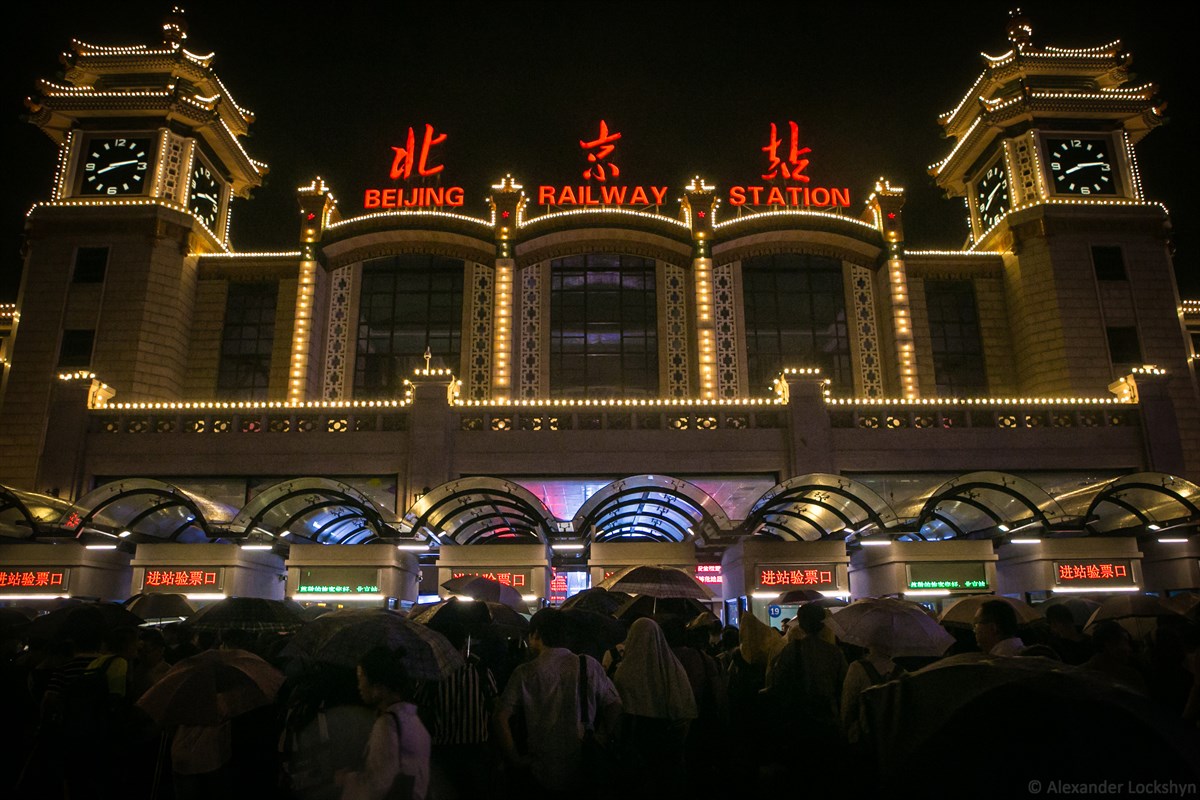
Others are just rushed, as usual in the railway stations.
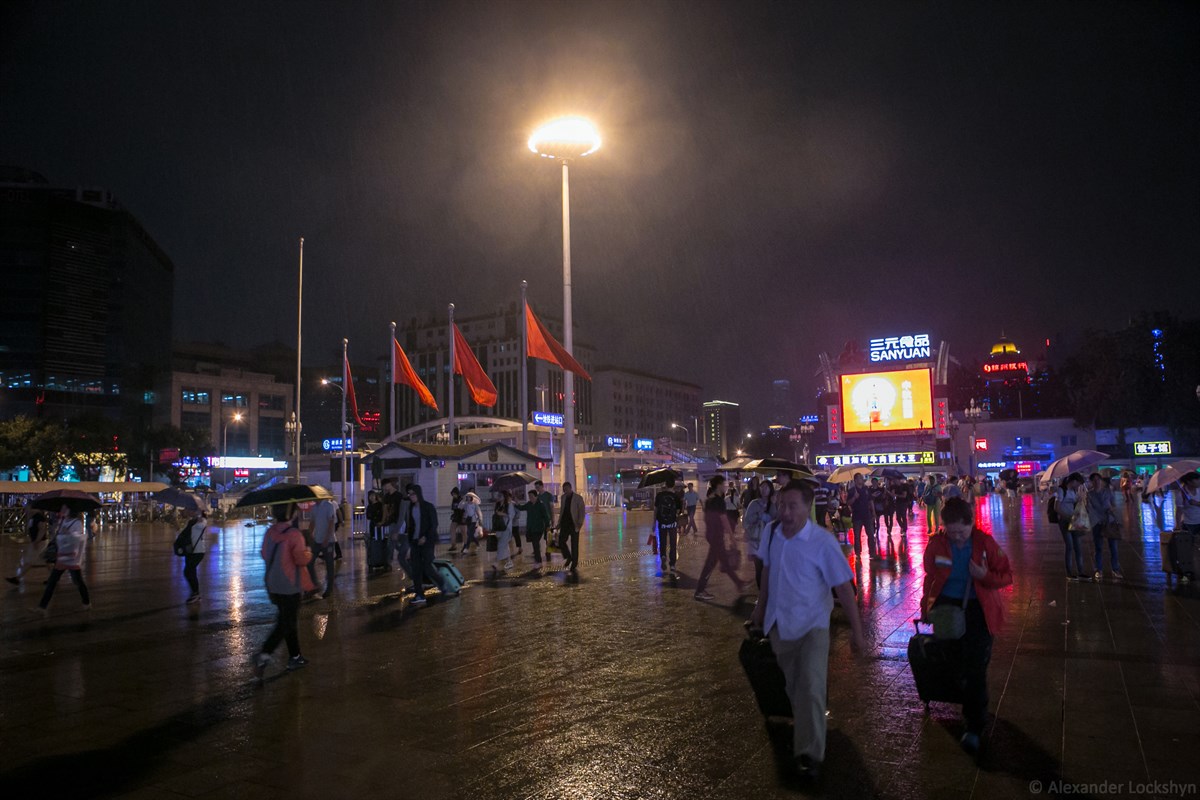
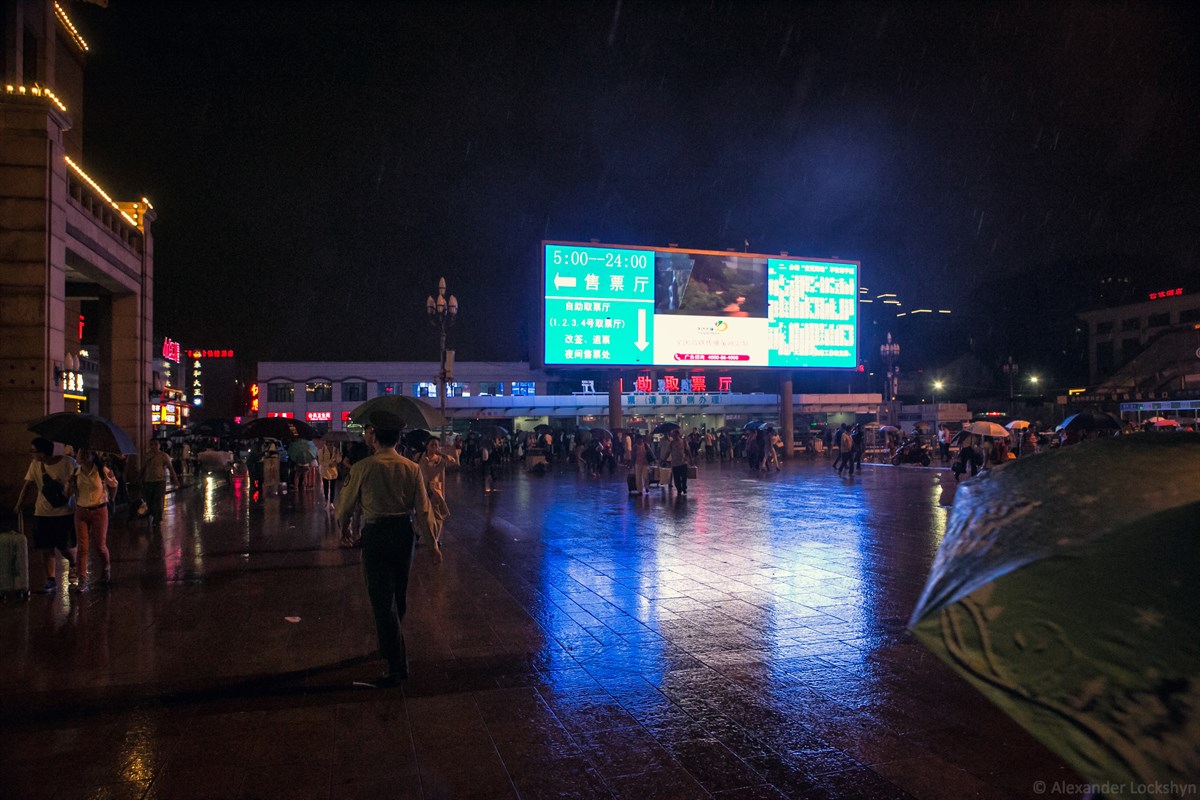
I’ve passed guards and entered ticket office. Despite large space it is just 20 or so people there… and 3 armed guards.
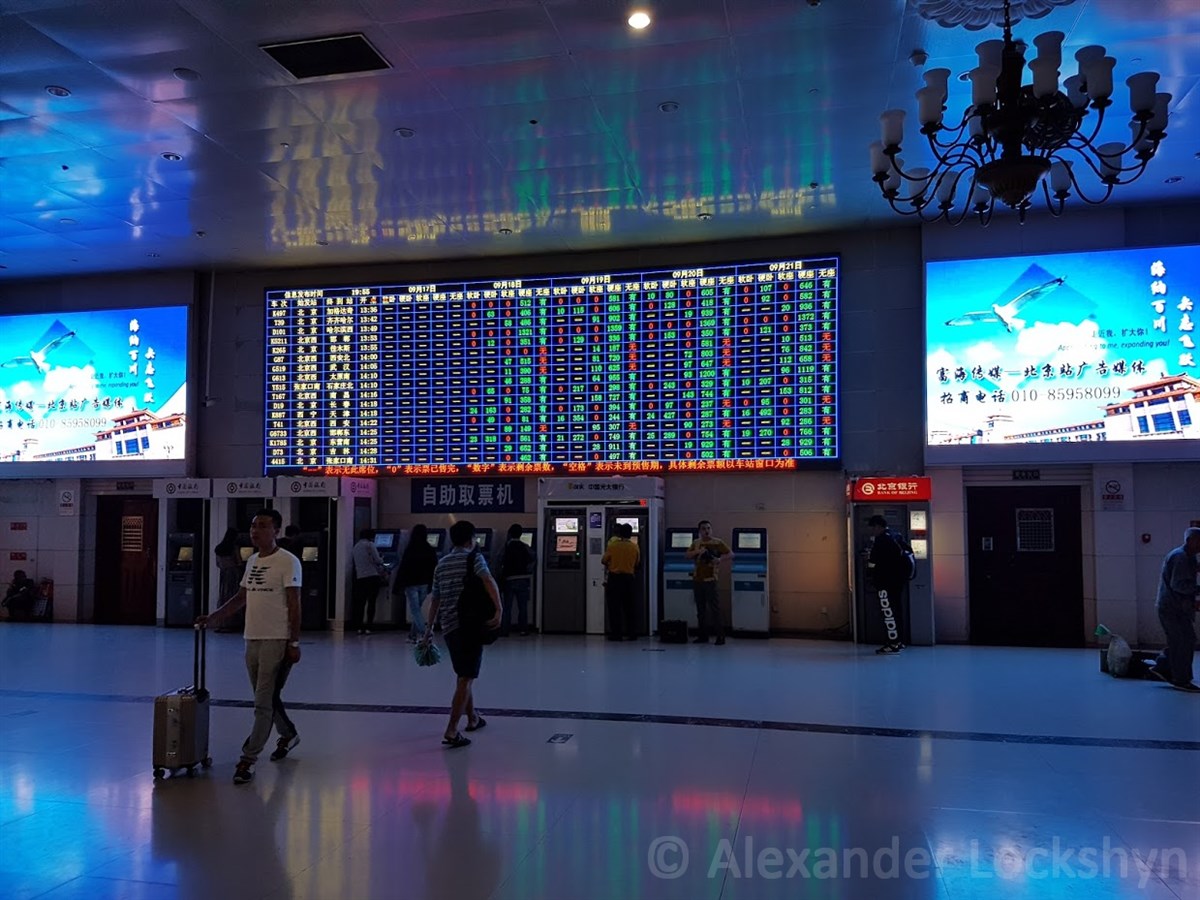
Then heavy rain started… Do you feel Blade Runner vibe?
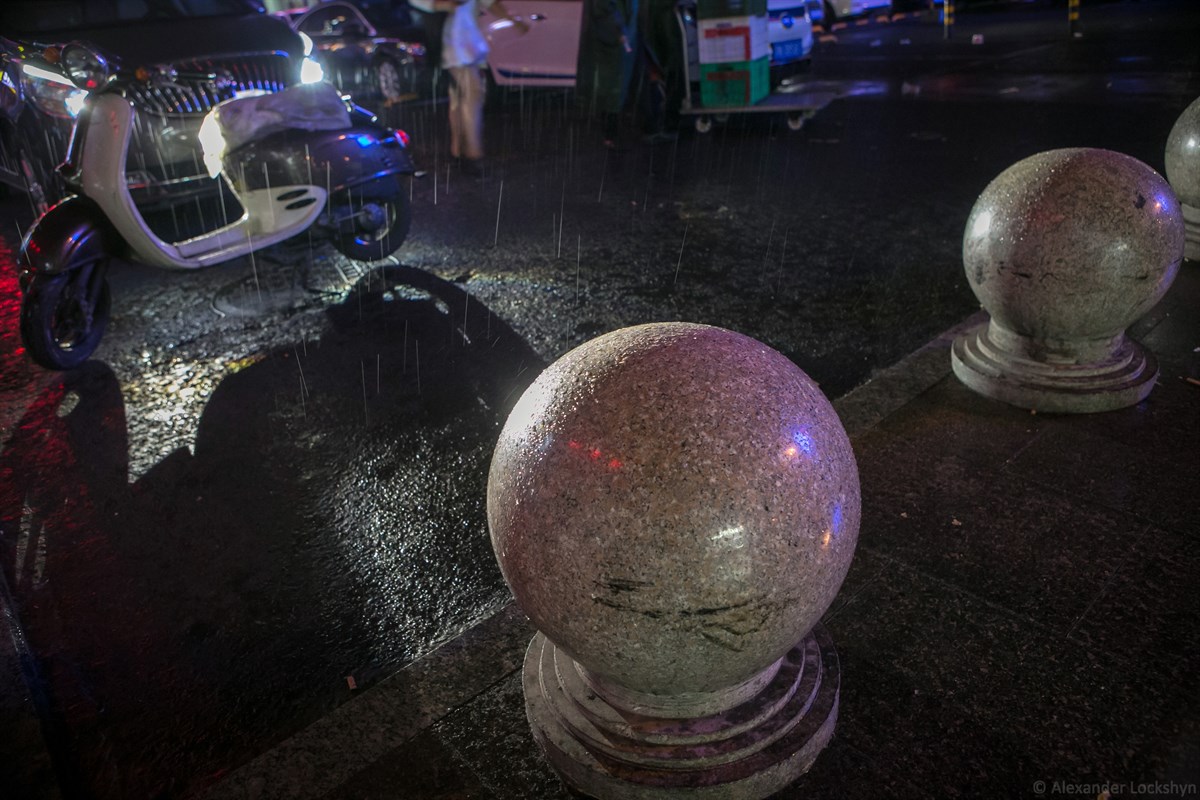
Neon signs glowing in the rain, light reflecting off the wet ground, crowds pushing under the roof, and smells lingering from the street food… what could be better?
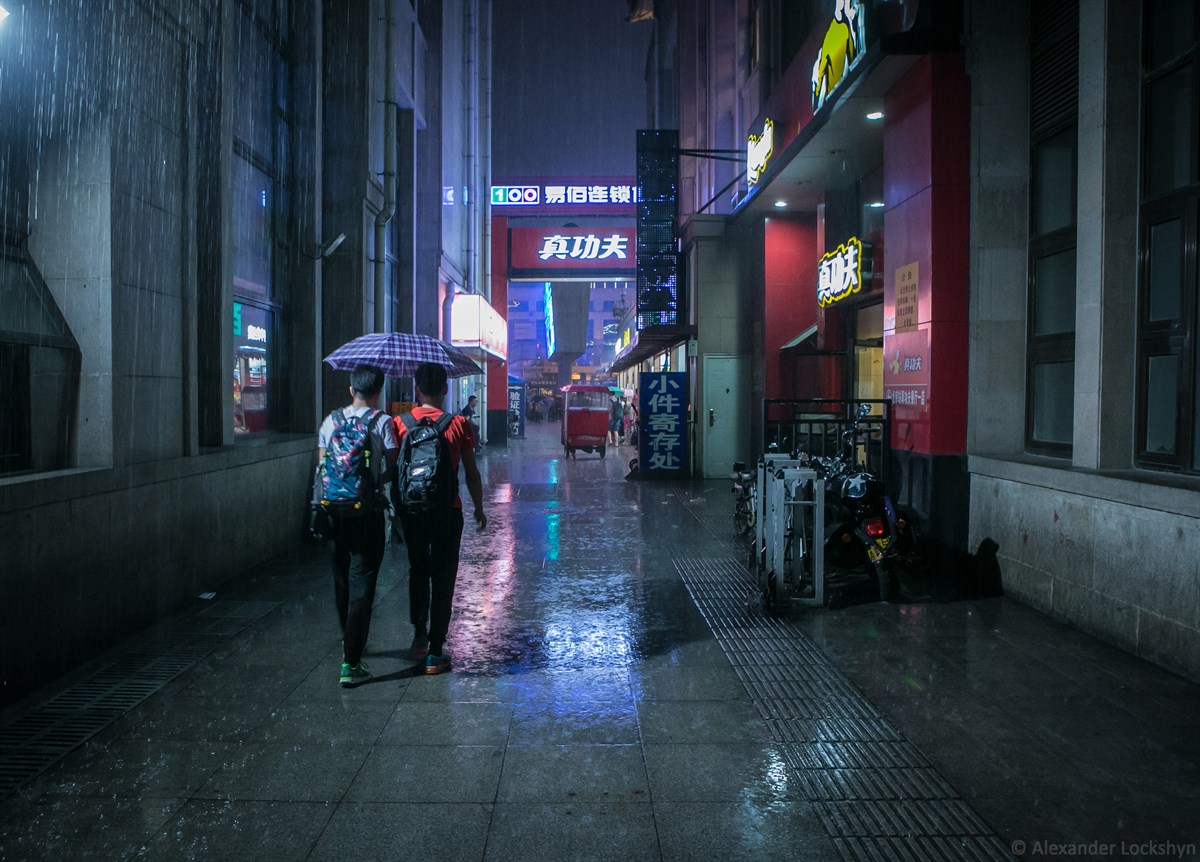
Turn on Vangelis songs and you’ll think it is a movie.
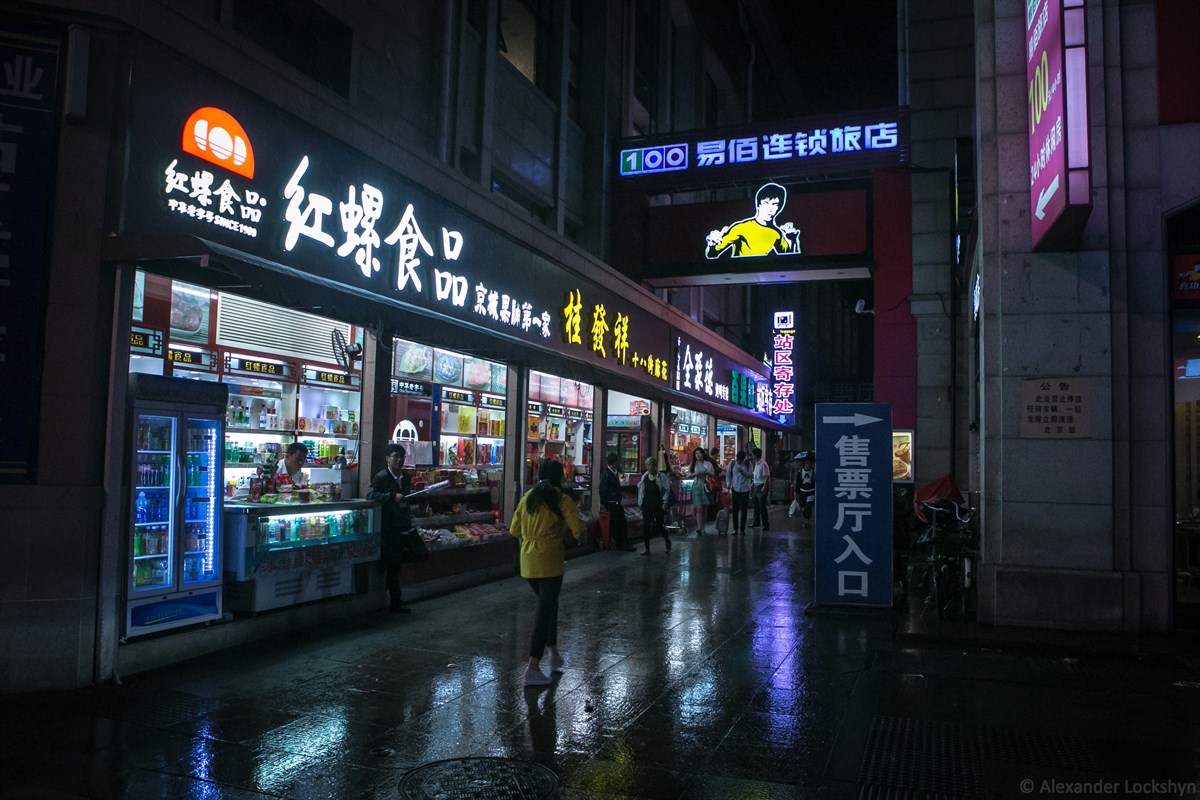
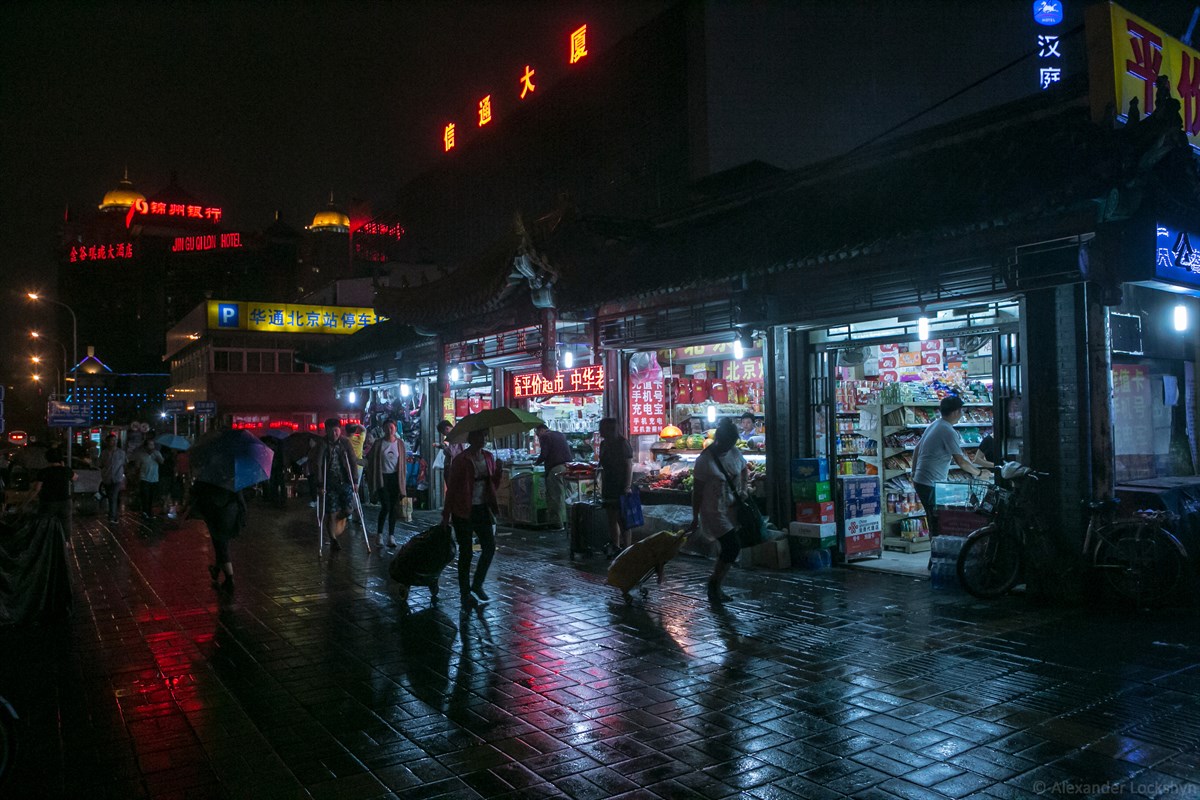
Ordering food
I’ve escaped the rainy square to hide from rain in the closest restaurant.
Being in China for the second time I knew that ordering food could be a huge challenge here, so I’ve learned a few phrases in Mandarin just before the trip.
My friend and I both asked for dumplings and a soup… waitress started asking questions, which was definitely harder than I expected, but somehow we’ve managed to do the order using some finger language. 10 minutes later she brought a dish of meat with vegetables and 2 small bowls of rice.
Probably next time I should study Mandarin harder.
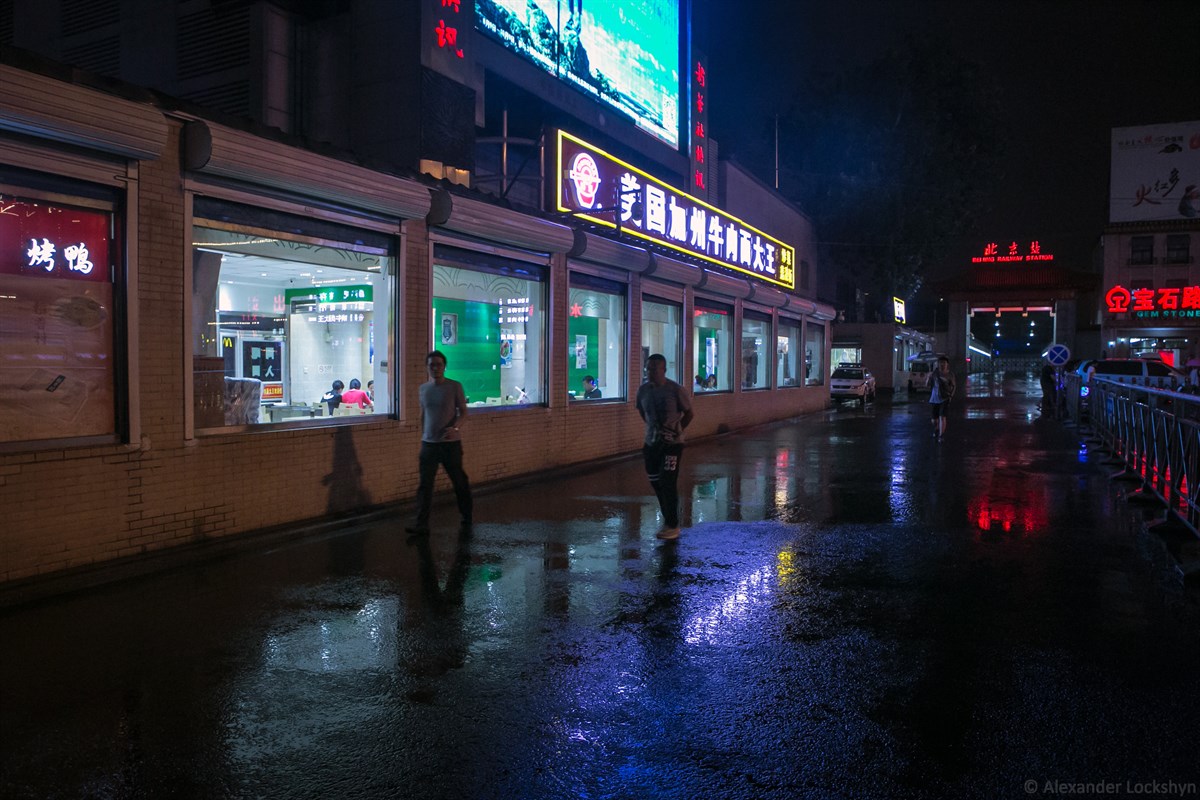
Welcome to the police state
Later that night I saw lots of people in police and army uniforms. Went to another restaurant: there were a girl with a soldier in army uniform. A man in plain clothes entered the restaurant, the guy in army uniform stood up and saluted him.
Welcome to police state! At least it should be safe here, no street crime or whatever.
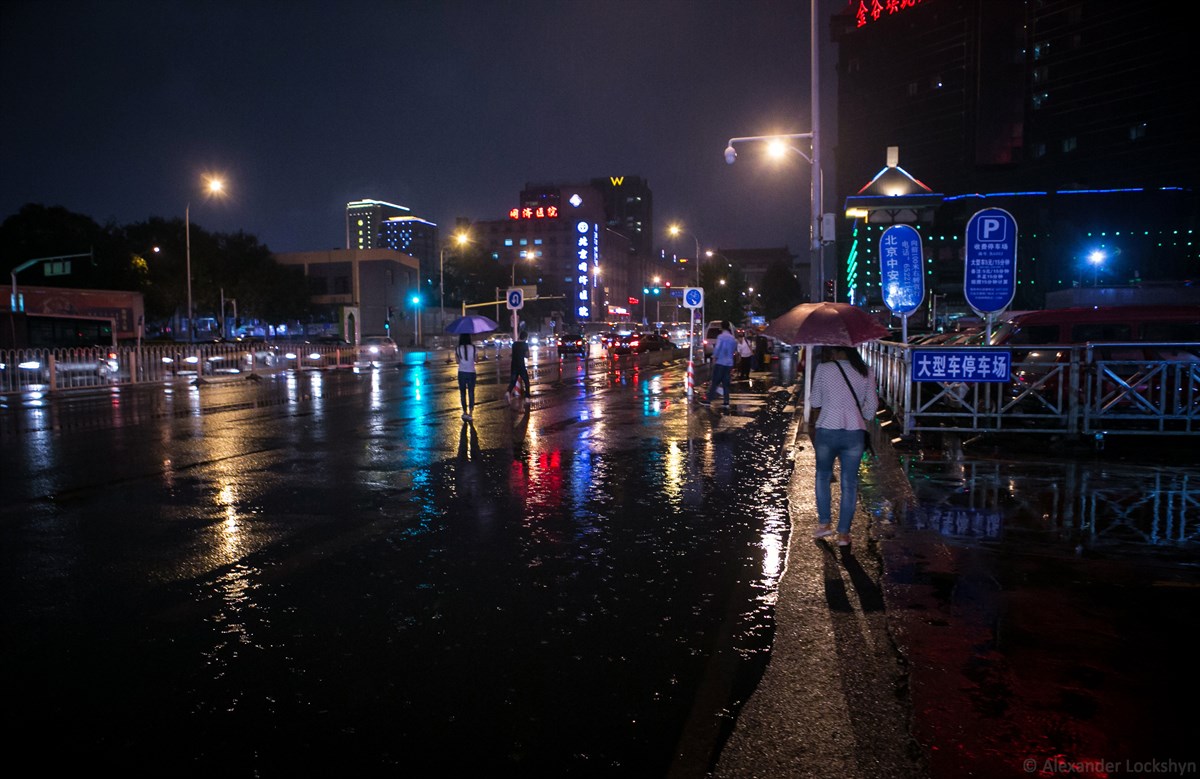
Being safe does not mean being comfortable: crossing the road is a challenge because of puddles and drivers, not willing to give a way to pedestrian.
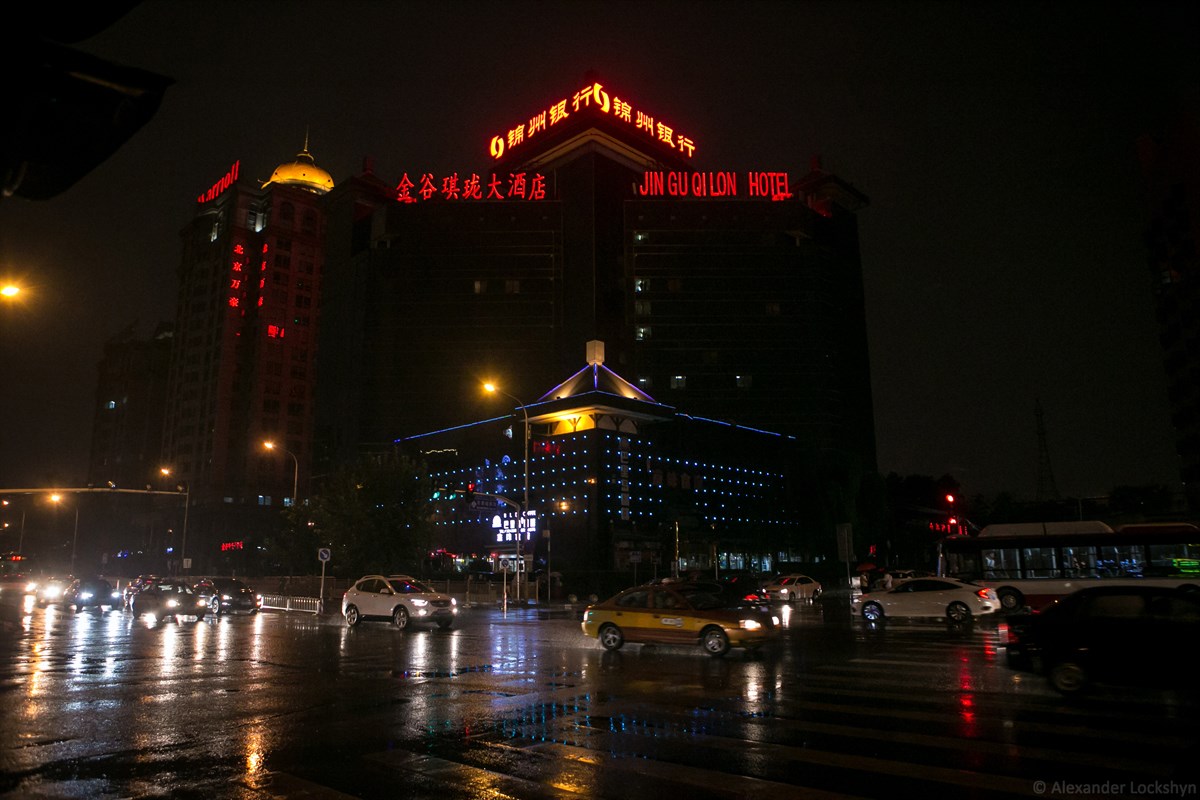
Despite no street crime, you’ll still face lot of scam, especially if you’re white and do not speak Chinese.
Taxi scam
Trying to get taxi from large subway station to your hotel? Every taxi driver forbids to go by a meter and asks a fixed price instead. That fixed price is 3–5 times higher, than the metered one. Go couple of blocks out of the station and take metered taxi with no problem.
The airport is huge. So to get to another terminal you should take a shuttle bus (which takes about 10 minutes). On the way to the shuttle bus a woman in airport uniform stopped me and asked where am I going. After answering other terminal number she told the only way to get there is taking a taxi, pointed at a man nearby and told me “this is a taxi driver, go with him”. I’ve told her to fuck off and expected her to become angry and shout at me or something like that, but instead she just lost any interest in me and asked the next guy “where are you going, sir?”.
Phone card scam
You go to tourist office and ask where could you buy local sim card. They point you to the main post office building. Post office vendor is eager to sell you the sim card, but tells the price which is double of the official one from carrier website.
Later I discovered it was a great deal, since you cannot buy a sim card legally in China as a foreigner, unless you are registered country resident.
Luckily all other Chinese cities (visited about 10 of them) are far less annoying and more foreigner-friendly than Beijing.
For curious minds
What are other things I’ve learned about Beijing?
- It is located in the weird place. Just on the outskirts of Gobi desert.
- The city is huge, but relatively low tech, comparing to other Chinese cities. Skyscrapers are more concrete than glass, airport express train is actually slow (about 50 km/h), etc. Probably it became developed 15–20 years before other Chinese mega cities.
- As in all authoritarian states, distrust is the norm, government treats people as potential criminals by default. For example, you could find a brochure about the city in the airport express, just like airline companies put in the back of seats. But the one in the train is chained to the seat!
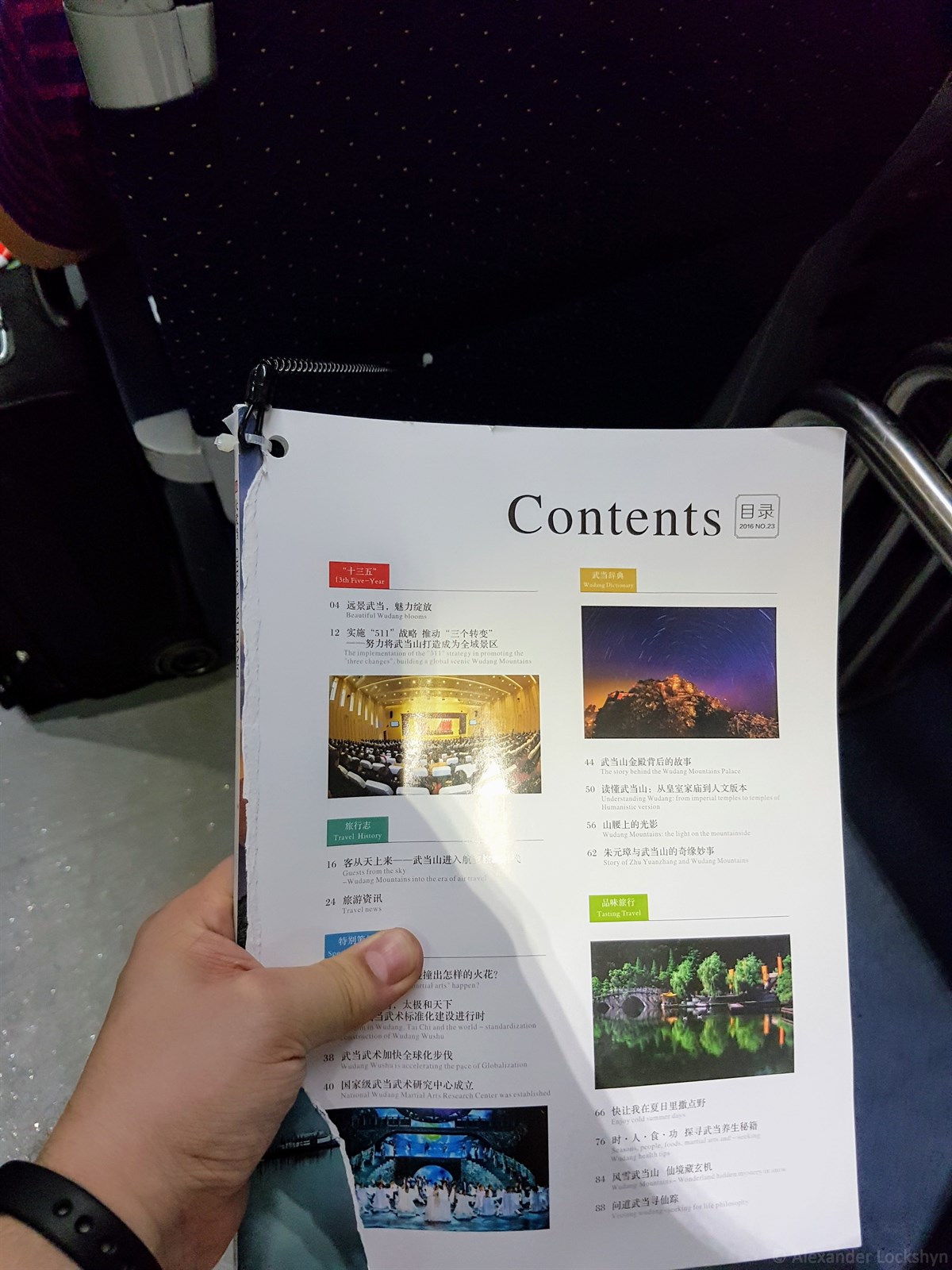
- 666 is a good number in China, unlike 4 and 7.
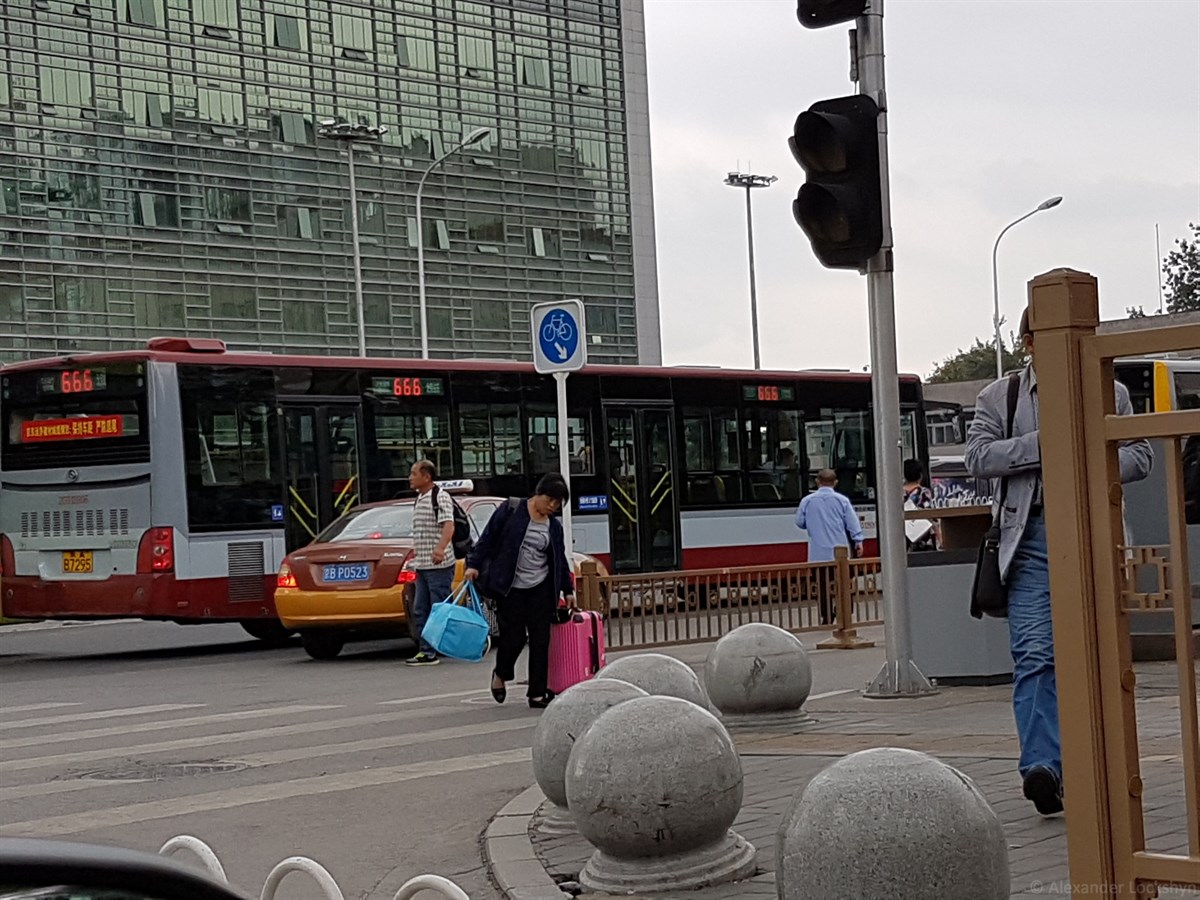
- On my way home from China the flight was delayed for 22 hours and so the airline sent me to the hotel in a district close to the airport. That district looks like cities in North Korea! You could send such photos to your friends and tell them, it is Pyongyang.
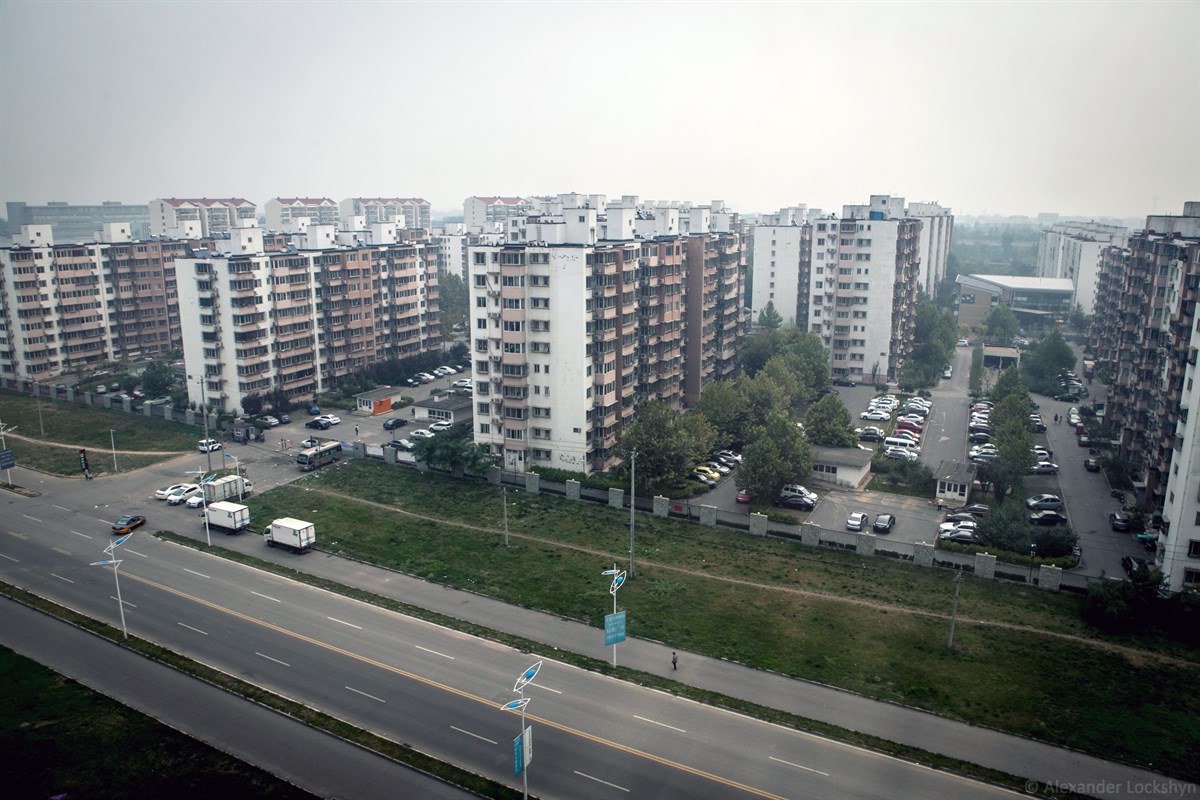

- Chinese people seemed much more passive and obedient than I expected. That flight delay was a mismanaged mess. We, passengers from all over Europe, US, Israel negotiated with airline and airport crew to find out what happened, get some food, transport and accommodation for the night, tickets for our new flights, etc. Chinese passengers just sat instead, waiting for us or their government to care.






